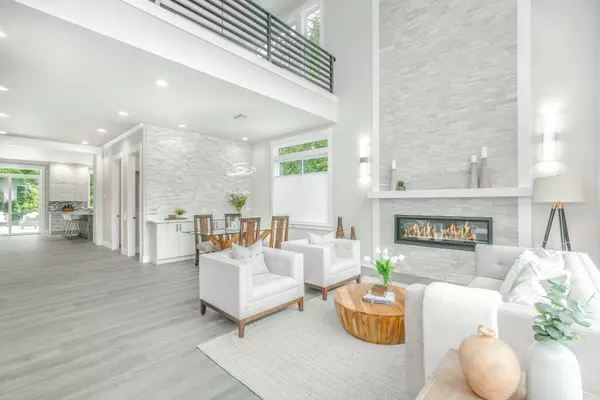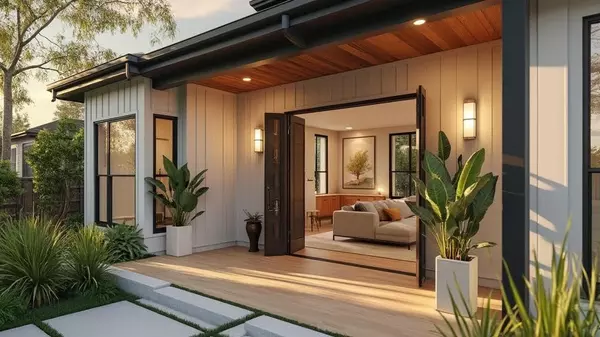How To Adapt To Living Alone For The First Time

You’ve begun to unpack boxes and put away your belongings in your new home. While it feels exciting, the silence of waking up alone might feel a bit lonely, too. Maybe you’ve just moved into your first apartment after college or you’re going through a break-up and learning to live without your partner.
While the journey will be filled with challenges, it’s also an opportunity to get to know yourself better and learn new skills. Your space is your own and you can have all the houseplants you want or finally paint that mural on your wall. Here are several ways you can adapt to living alone for the first time.
Create A Sense of Safety and Security
There are many ways to create a safe home environment when you’re living alone. If you’ve just bought the home, install a smart doorbell that lets you see who’s at the door on your phone. You can also install motion lights that provide safety when walking around and illuminate any suspicious activity before it goes too far.
Ask your landlord if you can change the locks for the front and back doors when you first move in. You’ll be able to rest knowing you’re the only person with access to your home. It’s also a good idea to get a spare key. Give it to a friend or neighbor or leave it at work. If anything happens you know you have another way in.
Maybe you always shared a room with your siblings or could only have minimal decorations in college. Now that you’re living alone, your space is yours alone and you can make it what you want. You can paint your walls pink, install abstract wallpaper or hang up a floating entertainment center if you want.
Remember to include throws and soft cushions to keep warm in NOLA weather. While you may have a thermostat or HVAC system, having something to cuddle up with makes your space more comfortable and personal.
Living alone is a transition filled with uncertainty and unfamiliarity. Give yourself comfort with routines geared towards cleaning or settling in after your day to help you cope with this transition. Research shows that routines can help you feel more in control in uncertain times and manage stress and anxiety.
Write up a cleaning routine you’ll be able to keep up with. Maybe for you, that looks like cleaning one room a day. Maybe you would prefer cleaning your whole house on the weekend and taking 10-15 minutes daily to put things back in their place.
Remember to clean areas you may not have been responsible for before. This is also an opportunity to cultivate self-reliance and confidence. Set aside time to deep clean your porch, weed out your garden or clean the garage. While you may not use your garage often, it’s essential to prevent pest infestation by keeping it clean, dry and well-maintained. A routine for this could look like regular vacuuming and keeping items stored in closed containers.

Allow Yourself To Make Mistakes And Learn New Things
Practice self-compassion and cultivate a curious mindset. Maybe your partner used to file your taxes and handle the budget. You might have to learn how to mow your lawn or fix a broken shelf in the kitchen. Allow yourself to try the task and learn how to do it.
Combine essential skills with fun activities. You could buy a toolbox and learn how to fix the kitchen sink faucet. Or watch a YouTube budget dashboard template tutorial and make your own – with all the colors and moving parts you want. This will help you improve your problem-solving skills and grow your confidence.
Tweak Your Budget and Grocery List
About that budget. Your spending and grocery shopping will decrease significantly compared to living with a partner or roommates. Make a budget with your necessities — and feel free to tailor it to your preferences.
Purchase essentials and non-perishables in bulk and make a meal plan so you know exactly what you need to prepare your meals. Try out different grocery trip schedules like buying fresh foods once or twice a week and other grocery items every two months. As time goes by, you’ll eventually figure out what suits your budget — and your stomach.
A whole home to yourself can be an adjustment that might bring up feelings of loneliness or sadness. Maybe an unexpected event led to your move and you still need to process the loss or change.
It’s essential to keep healthy habits so the transition is easier on your body. Include as much fruit, vegetables and whole foods as possible in your diet. Attend a demo at the New Orleans School of Cooking to learn how to make fresh and unique meals with the ingredients you have. You’ll support your health and might get to know new people while you’re at it.
This might be the time to join a spin class or neighborhood exercise group. Exercise can reduce stress and social interaction will help you cope better emotionally.
Your new neighborhood will be your home for a while. Take some time to walk around and explore. Maybe you’ll find a route you like or meet a neighbor with similar interests. Knowing your surroundings will help you to feel safe, and you’ll build a community that can help when you need it.
Visit places that are new to you. Maybe you’ve always wanted to go to the Backstreet Cultural Museum for a live music performance but something always came up. Now’s your chance to explore.
Navigating Living Alone For the First Time
Remember to be kind to yourself. Embrace the change and let yourself learn new things as you transition. You’ll learn more about yourself, develop self-reliance and you might just find that you’ve always been a handy-person.

*Written by Rose Morrison of renovated.com
Categories
Recent Posts










